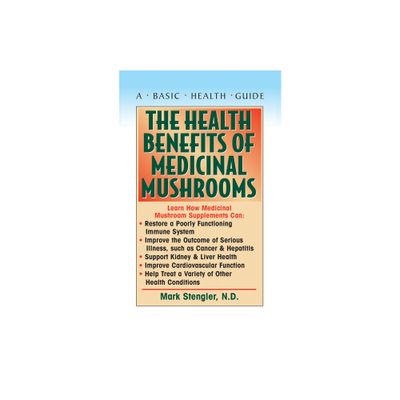Home
Health Benefits of Nuts and Dried Fruits / Edition 1
Loading Inventory...
Barnes and Noble
Health Benefits of Nuts and Dried Fruits / Edition 1
Current price: $230.00


Barnes and Noble
Health Benefits of Nuts and Dried Fruits / Edition 1
Current price: $230.00
Loading Inventory...
Size: OS
*Product Information may vary - to confirm product availability, pricing, and additional information please contact Barnes and Noble
Nuts and dried fruits are part of our daily diet. They are consumed whole or as ingredients of many food products such as muffins, cereals, chocolates, energy bars, breads, and cookies, among others.
Health Benefits of Nuts and Dried Fruits
provides a comprehensive overview of the literature on the health benefits of nuts and dried fruits. The book summarizes the current state of knowledge in key research areas and provides ideas for future scientific research and product development.
Nuts, a term that comprises tree nuts and peanuts, are highly nutritious, containing health-promoting macronutrients, micronutrients, vitamins, and bioactive phytochemicals; they are one of the edible foods with the highest content in antioxidants. The consumption of nuts is recognized for its health-promoting properties, which ranges from a consistent cholesterol-lowering effect in clinical trials to a robust association with reduced risk of cardiovascular disease and all-cause mortality in prospective studies. In spite of the high energy content of nuts, there is no evidence that their frequent consumption promotes obesity, and they may even help control it.
Dried fruits, which serve as important healthful snacks worldwide, are nutritionally equivalent to fresh fruits while providing all of their bioactive components in concentrated form. While the evidence level concerning the health effects of dried fruits lags behind that on nuts, it suggests that individuals who consume dried fruits regularly have a lower risk of cardiovascular disease, obesity, and other non-communicable diseases.
Main features of the book concerning nuts and dried fruits:
• Provides detailed information on health effects
• Highlights current regulation and health claims
• Provides updated dietary recommendations
• Describes nutrient absorption and metabolism
• Discusses mechanisms implicated in the health effects
Although this book is intended primarily as a reference, by comprehensively reviewing the current state of knowledge it can guide future research on the topic. Among others, food scientists, biochemists, nutritionists, health professionals, decision makers, and regulatory agencies can draw much benefit from its contents. Hopefully, it will help in public health strategies to promote healthy aging and improve population wellbeing.
Health Benefits of Nuts and Dried Fruits
provides a comprehensive overview of the literature on the health benefits of nuts and dried fruits. The book summarizes the current state of knowledge in key research areas and provides ideas for future scientific research and product development.
Nuts, a term that comprises tree nuts and peanuts, are highly nutritious, containing health-promoting macronutrients, micronutrients, vitamins, and bioactive phytochemicals; they are one of the edible foods with the highest content in antioxidants. The consumption of nuts is recognized for its health-promoting properties, which ranges from a consistent cholesterol-lowering effect in clinical trials to a robust association with reduced risk of cardiovascular disease and all-cause mortality in prospective studies. In spite of the high energy content of nuts, there is no evidence that their frequent consumption promotes obesity, and they may even help control it.
Dried fruits, which serve as important healthful snacks worldwide, are nutritionally equivalent to fresh fruits while providing all of their bioactive components in concentrated form. While the evidence level concerning the health effects of dried fruits lags behind that on nuts, it suggests that individuals who consume dried fruits regularly have a lower risk of cardiovascular disease, obesity, and other non-communicable diseases.
Main features of the book concerning nuts and dried fruits:
• Provides detailed information on health effects
• Highlights current regulation and health claims
• Provides updated dietary recommendations
• Describes nutrient absorption and metabolism
• Discusses mechanisms implicated in the health effects
Although this book is intended primarily as a reference, by comprehensively reviewing the current state of knowledge it can guide future research on the topic. Among others, food scientists, biochemists, nutritionists, health professionals, decision makers, and regulatory agencies can draw much benefit from its contents. Hopefully, it will help in public health strategies to promote healthy aging and improve population wellbeing.


















